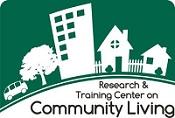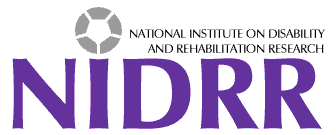The Community Engagement Initiative (CEI) Knowledge Translation research project uses a grassroots community engagement technique to assess both the efficacy of the CEI method to address recreation access for people with disabilities and effective knowledge transfer methods for using the Community Engagement Evaluation.
About the Project
Background
Knowledge translation (KT) is increasingly seen as one mechanism to increase the utilization of research findings. KT reflects the process of moving research findings to real-world applications in a variety of practice settings and circumstances. KT is a broad concept that includes everything from writing up research results in formats that are useful to a target audience to engaging with that target audience to ensure that the results are meaningful to them. Yet, the ultimate purpose of KT is both the transfer and subsequent use of knowledge.
Research on how knowledge translation happens – that is, how research findings or research-based practices are understood and then applied in the field – is critical, but it is also an emerging field. The RTC-CL has included the Community Engagement Initiative Knowledge Translation (CEI KT) Project to explore the adoption and use of an evidence-based process in a real-world setting. As a KT project, this research contributes to NIDRR’s broader mission of capacity building while addressing the issue of recreational opportunities for people with disabilities. This project will advance the evidentiary basis created by one of the research projects completed for the previous Research and Training Center on Measurement and Interdependence in Community Living.
Purpose & Objectives
The purpose of this study is twofold:
- to investigate the knowledge translation process by evaluating the impact of varying levels of technical assistance given to communities so that they can implement the CEI; and
- to determine the degree to which the CEI's evidence-based process can be used to remove barriers to participation in an area in addition to health care (here, recreation).
The research objectives of the study include obtaining a better understanding of the process of knowledge translation and the local “uptake” and application of the CEI methodology, as well as determining if the CEI method is effective when applied to a different topical area.
The overall goal of the project is to increase the participation of people with disabilities in health care and recreation opportunities. Not only do people with disabilities have a fundamental right to access recreation opportunities in their community, recreation activities provide opportunities to improve health, relationships, and enjoyment of life and to ensure a continuity of community living.
Research Questions
The project has four primary research questions.
- Will graduated levels of KT assistance to the communities result in differential results in identifying and ameliorating barriers to participating in community health care and recreation activities?
- What components of the CEI will be adopted, modified, or dropped, and what components added under different KT assistance conditions?
- Will a community engagement technique used to identify and resolve barriers to accessing health care be effective in identifying and resolving barriers to accessing community health care and recreation activities – i.e., will it create more opportunities for recreation participation?
- Will removal of community recreation barriers result in an increase in participation?
Anticipated Benefits
The CEI project will complete a number of products including a summary of previous CEI research results, a “how to guide” on using the CEI, and a training curriculum in order to conduct the project. Research results from the project will then be used to refine these products and will include a set of recommendations for the most cost-effective methods to increase health care and recreation participation among people with disabilities.
The final impacts will be establishing the reliability of CEI used for health care access as a means to address recreation barriers and increased opportunities and levels of participation in recreation activities by people with disabilities.
Our Partners
The University of Kansas
- Glen W. White, PhD, Center Director - PI: R-11, SSR-1, SSR-2
- Martha Hodgesmith, JD, Associate Director
- Megan O'Brien, PhD, Research Director - SSR-1, SSR-2; - PI: R-7
- Jean Ann Summers, PhD, Evaluation Specialist
- Amanda Reichard, PhD, PI: R-4
- Jerry Schultz, PhD - R-11
- Christina Holt, MA - R-11
- Dorothy Nary, PhD - SSR-1, SSR-2
- Amalia Monroe-Gulick, MLS - SSR-1, SSR-2
- Val Renault, MA, Communications Coordinator
University of Montana
- Craig Ravesloot, PhD - PI: R-1, R-2, R-9
- Tom Seekins, PhD - R-1, R-2, R-9
Washington University in St. Louis
- David B. Gray, PhD - PI: R-6
- Jessica Dashner, OTD, OTR/L - PI: R-8
University of Illinois at Chicago
- Fabricio Balcazar, PhD - PI: R-5
Additional Resources
The Research and Training Center on Community Living (RTC-CL) develops evidence-based programs, policies and practices that further community living and participation among people with disabilities. The goal of the RTC-CL is to increase the interdependence and full community participation of people with disabilities through the development and implementation of scientifically sound, theoretically driven and evidence-based interventions.
Six research projects are analyzing secondary data to learn how barriers to and experiences of community living may differ across socio-demographic and geographic groups. With this information as a foundation, five more projects will test new strategies designed to improve community living opportunities for individuals with disabilities. These interventions focus on housing, health, recreation and community and civic involvement. Two systematic scoping reviews will also inform the other projects.
Additional RTC Resources
- Guidelines: How to Write and Report About People with Disabilities, 8th Edition: This resource from the Research and Training Center on Independent Living provides recommended terminology to use and to avoid when discussing people with disabilities. For information about writing and reporting about people with disabilities visit the RTCIL Guidelines.
- TEXT format - Infographics for Home and Community Accessibility in the American Housing Survey: U.S. Housing - Urban and Rural
- TEXT format - Infographics for Home and Community Accessibility in the American Housing Survey: U.S. Rural Housing

The Research and Training Center on Community Living (RTC-CL) develops evidence-based programs, policies and practices that further community living and participation among people with disabilities.

The Rehabilitation Research and Training Center on Community Living (RTC-CL) is a project funded by the Institute on Disability, Independent Living, and Rehabilitation Research (NIDILRR), under grant H133B110006. NIDILRR is a Center within the Administration for Community Living (ACL), Department of Health and Human Services (HHS). The contents do not necessarily represent the policy of the NIDILRR, ACL, or HHS, and you should not assume endorsement by the Federal Government.